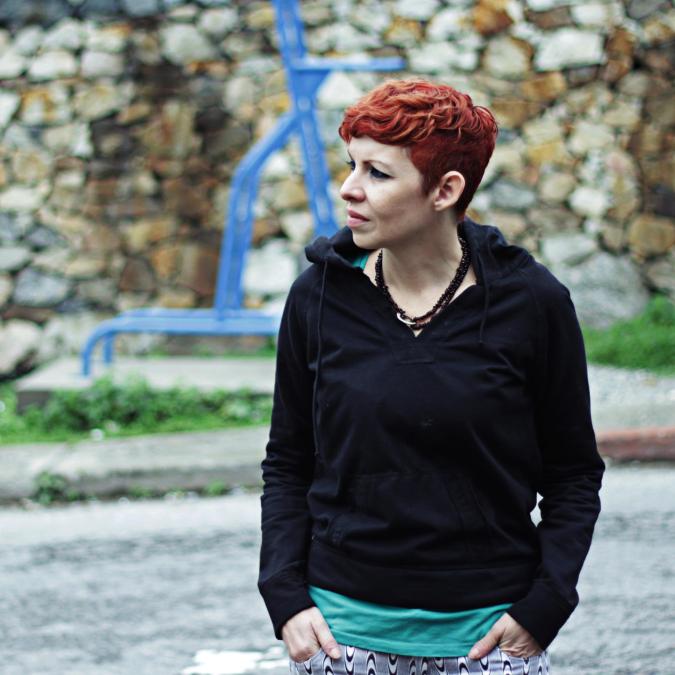Machismo, homophobia, and all sorts of backward attitudes about sexuality and gender plague countless Latin American and Latino families. So often, these preconceptions are not born of plain hate, but of shame guided by a false sense of right and wrong. Given the culture, it’s not surprising when loved ones make decisions that only reaffirm or exacerbate this guilt, yet the impact is no less devastating.
Yo, Imposible (Being Impossible) is Venezuelan director Patricia Ortega’s harrowing sophomore feature about a young dressmaker who learns, after her first sexual encounter, that she was born intersex. When Ariel (newcomer Lucía Bedoya) loses her virginity, the saying that the first time hurts the most is somehow still understated. Extreme pain and bleeding takes her to see the longtime family doctor, whom her cancer-ridden mother insists is the only person capable of understanding her “condition.” Meanwhile, at her place of work — an emptied floor of a factory building where several sewing machine stations are bunched together — Ariel tentatively begins a romance with her mother’s replacement, a confident woman of African descent.
Ariel soon learns that as a child, her mother had her undergo multiple surgeries so that she could “fit” into a woman’s body more clearly; her doctor explains with chilling clinical language that she was castrated and given an artificial vaginal canal. Accustomed to a solitary life with her mother, the alienating routine of her factory work, and a forced conventional relationship with the son of family friends, Ariel has lived a muddled, fractious life. She has always felt at odds, and uncomfortable in her body. A droning background score pervades the film. It’s a stifling hum that overwhelms the senses even in moments of quiet reflection, an overpowering auditory dimension that echoes the story’s ideas about control, or the lack of it.

Filmed in an impoverished part of rural Venezuela, Ortega and cinematographer Mateo Guzmán opt for a muted, neutral color palette that steeps the natural surroundings in a brew of uncertainty and dissolution. Instead of weaving in explicit commentary on Venezuela’s financial problems, the realistic set design of homes built from metal panels and massive concrete factories conveys the humble socioeconomic status of our characters, and their remote living. Color, when it rarely appears, comes as a shock. A cloud of red invades the clear waters of a bathtub as Ariel applies a sham remedy. The other women at her dress factory scrawl mocking comments about her gay relationship on the bathroom mirror with thick, crimson lipstick.

The script’s minimal dialogue can be frustrating, as verbal exchanges between two characters feel unsatisfactory in their intentional restraint. The dominant mode of communication is silence pregnant with ambiguous meaning, while verbal, monosyllabic communication is merely a form of punctuation. Like the use of red, our protagonist’s anguished cries and screams in moments of extreme pain (i.e. when she attempts to have penetrative sex) cut through the film’s verbal inhibitions as if with a knife.
The film uses establishing shots sparingly, and relies on lurid close-ups that capture expressions and bodies as detached or cut off from the whole. Even pivotal moments are presented as fragmented images; Ariel, for instance, very painfully loses her virginity through a series of midrange shots that seem to be peeking in through gray panels and doorways. Perhaps the film’s most lucid and unequivocal images are filmed second hand, through a camera within the film that occasionally interrupts the story with interviews of other intersex individuals relating their experiences. Yo, Imposible shifts awkwardly back and forth between time periods and encounters in order to develop dramatic tension and create a sense of escalating crisis, which oftentimes feel contrived or unnecessary. The film is structured in such a way meant for a big reveal — but this twist only exists for the character, which gives audiences an anti-climactic upper-hand. Nevertheless, the final act is an empowering and incredibly progressive conclusion to a story that could otherwise end so tragically, a breath of relief considering the policy concerns regarding gay and queer rights that have yet to be addressed in Venezuela.
Yo, Imposible screened at the SXSW Film Festival.
It is Venezuela’s submission for the Best International Film category at the 92nd Academy Awards.




